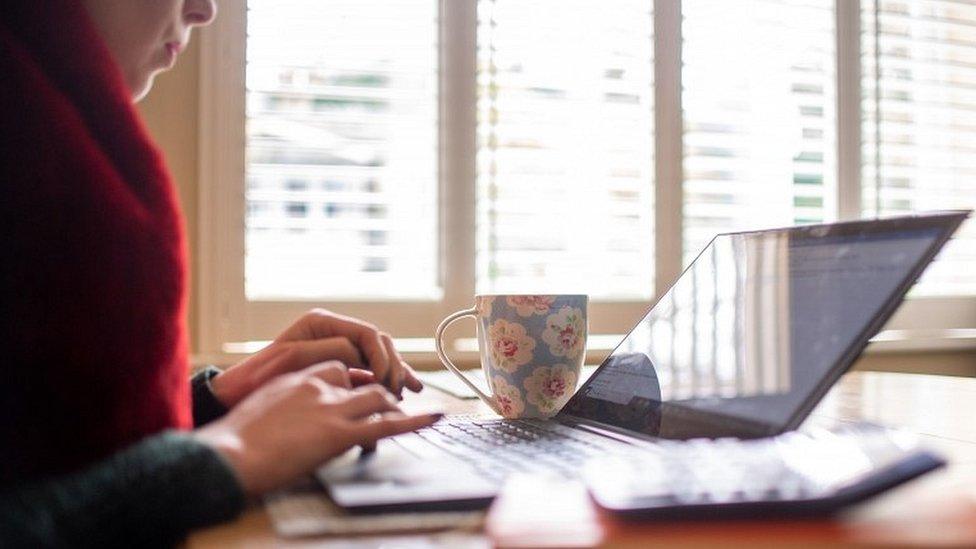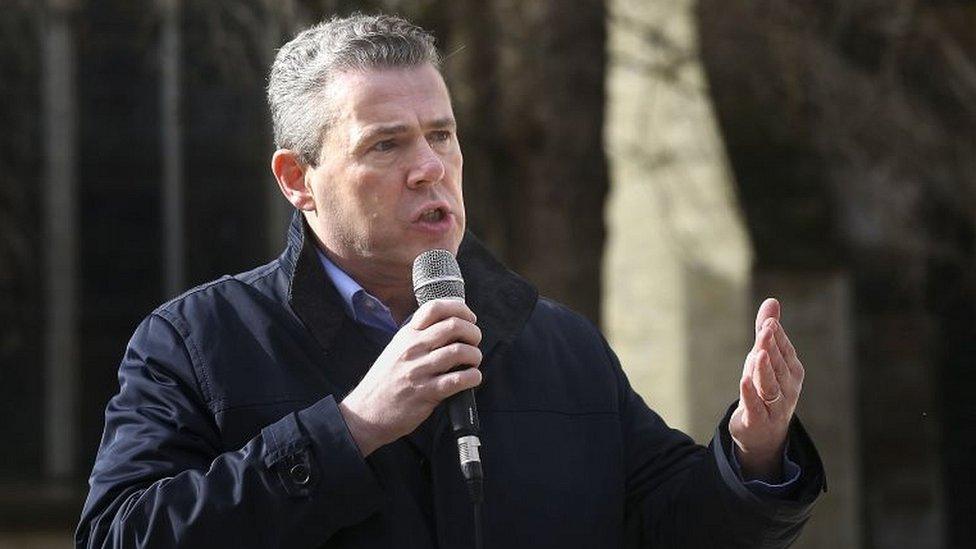Covid: Don't force us back into office, say civil servants
- Published
- comments

The government must not "under any circumstances" order civil servants in England to return to the office until Covid rates are cut, a union has said.
The PCS warned it would not rule out industrial action if this happened.
Last September ministers told civil servants to spend more time in the office, but dropped the policy as Covid cases increased.
The government is looking into guidance on flexible working as it reviews social distancing measures.
It said civil servants' safety was "a key priority" and it was "learning lessons" from its "experience over the past year".
The PCS's demand also comes as the Daily Mail is reporting that millions of office staff could be given a "default" right to work from home, external from later this year.
A Downing Street spokesman said there are no plans to introduce a legal right to work from home but that the government is consulting on making flexible working a default option.
The spokesman defined flexible working as "a range of working arrangements around time, place and hours of work including part-time working, flexi-time or compressed hours" but not necessarily working from home.
On Wednesday, MPs backed a four-week delay to the ending of lockdown restrictions in England, with the more easily transmissible Delta variant driving an increase in Covid infections.
In September 2020, the government ordered Whitehall bosses to get 80% of staff to go into the office at least once a week, saying that they should set an example to the private sector.
But the senior civil servants' union, the FDA, called the move "Luddite", arguing that technology made working from home effective.
The government discarded its plans after two weeks, as coronavirus infections started soaring for a second time.
'Highly disruptive diktats'
PCS general secretary Mark Serwotka told the BBC he was "very concerned" the government might again push for more office-based working for civil servants when its safety review is completed in the next few weeks.
He warned against issuing "highly disruptive diktats", saying: "September 2020 was a disaster. It was deeply resented by managers, as well as staff."

Mark Serwotka says civil servants have to feel safe at work
A further 9,055 Covid cases were confirmed by the government on Wednesday, up from around 2,000 per day three weeks ago.
Hospitalisations are also up, although they are still at a far lower level than during the first and second wave of infections, while almost 80% of UK adults have had a first vaccination, and more than half have had their second.
Mr Serwotka said civil servants needed to "have a series of options open to them to allow them to make the best decision for them and, most importantly, be made to feel safe and secure".
He said officials in the Cabinet Office - which coordinates government policy - had shown "some recognition" that last September's call for a return to the office "should not be repeated under any circumstances".
"However, whether ministers recognise the reality is another question," Mr Serwotka added, saying offices must be Covid-secure.
'Following guidance'
The government insists this is the case, with all ministries following rules on social distancing and hygiene laid down by the Department for Business, Energy and Industrial Strategy.
"The safety of our staff remains a key priority and the civil service continues to follow the latest government guidance on working from home, as we have done throughout the pandemic," a spokesperson said.
"We have made good use of technology to enable civil servants to work effectively and productively when working remotely and we are learning lessons from our experience over the past year to inform how we work in the future."
The current advice to work at home where possible applies across the UK.